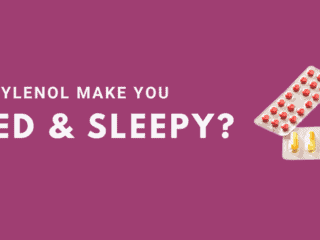The following information comes from DailyMed, an FDA label information provider.
Adverse Reactions
The following serious adverse reactions are described, or described in greater detail, in other sections:
- Addiction, Abuse, and Misuse
- Life-Threatening Respiratory Depression
- Neonatal Opioid Withdrawal Syndrome
- Interactions with Benzodiazepines or Other CNS Depressants
- Adrenal Insufficiency
- Severe Hypotension
- Gastrointestinal Adverse Reactions
- Seizures
- Withdrawal
Adverse Reactions Reported from Clinical Trials
Because clinical trials are conducted under widely varying conditions, adverse reaction rates observed in the clinical trials of a drug cannot be directly compared to rates in the clinical trials of another drug and may not reflect the rates observed in practice.
Oxycodone hydrochloride tablets have been evaluated in open label clinical trials in patients with cancer and nonmalignant pain. Oxycodone hydrochloride tablets are associated with adverse experiences similar to those seen with other opioids.
Serious adverse reactions associated with oxycodone hydrochloride tablets use included: respiratory depression, respiratory arrest, circulatory depression, cardiac arrest, hypotension, and/or shock.
The common adverse reactions seen on initiation of therapy with oxycodone hydrochloride tablets are dose related and are typical opioid-related adverse reactions. The most frequent of these included: nausea, constipation, vomiting, headache, pruritus, insomnia, dizziness, asthenia, and somnolence. The frequency of these reactions depended on several factors, including clinical setting, the patient’s level of opioid tolerance, and host factors specific to the individual.
In all patients for whom dosing information was available (n=191) from the open-label and double-blind studies involving oxycodone hydrochloride tablets, the following adverse events were recorded in oxycodone hydrochloride tablets treated patients with an incidence ⥠3%. In descending order of frequency they were: nausea, constipation, vomiting, headache, pruritus, insomnia, dizziness, asthenia, and somnolence.
Other less frequently observed adverse reactions from opioid analgesics, including oxycodone hydrochloride tablets included:
Blood and lymphatic system disorders: anemia, leukopenia
Cardiac disorders: cardiac failure, palpitation, tachycardia
Gastrointestinal disorders: abdominal pain, dry mouth, diarrhea, dyspepsia, dysphagia, glossitis, nausea, vomiting.
General disorders and administration site conditions: chills, edema, edema peripheral, pain, pyrexia
Immune system disorders: hypersensitivity
Infections and infestations: bronchitis, gingivitis, infection, pharyngitis, rhinitis, sepsis, sinusitis, urinary tract infection
Metabolism and nutrition disorders: decreased appetite, gout, hyperglycemia
Musculoskeletal and connective tissue disorders: arthralgia, arthritis, back pain, bone pain, myalgia, neck pain, pathological fracture
Nervous system disorders: hypertonia, hypoesthesia, migraine, neuralgia, tremor, vasodilation
Psychiatric disorders: agitation, anxiety, confusional state, nervousness, personality disorder
Respiratory, thoracic and mediastinal disorders: cough, dyspnea, epistaxis, laryngospasm, lung disorder
Skin and subcutaneous tissue disorders: photosensitivity reaction, rash, hyperhidrosis, urticaria
Vascular disorders: thrombophlebitis, hemorrhage, hypotension, vasodilatation
Disclaimer: this article does not constitute or replace medical advice. If you have an emergency or a serious medical question, please contact a medical professional or call 911 immediately. To see our full medical disclaimer, visit our Terms of Use page.




